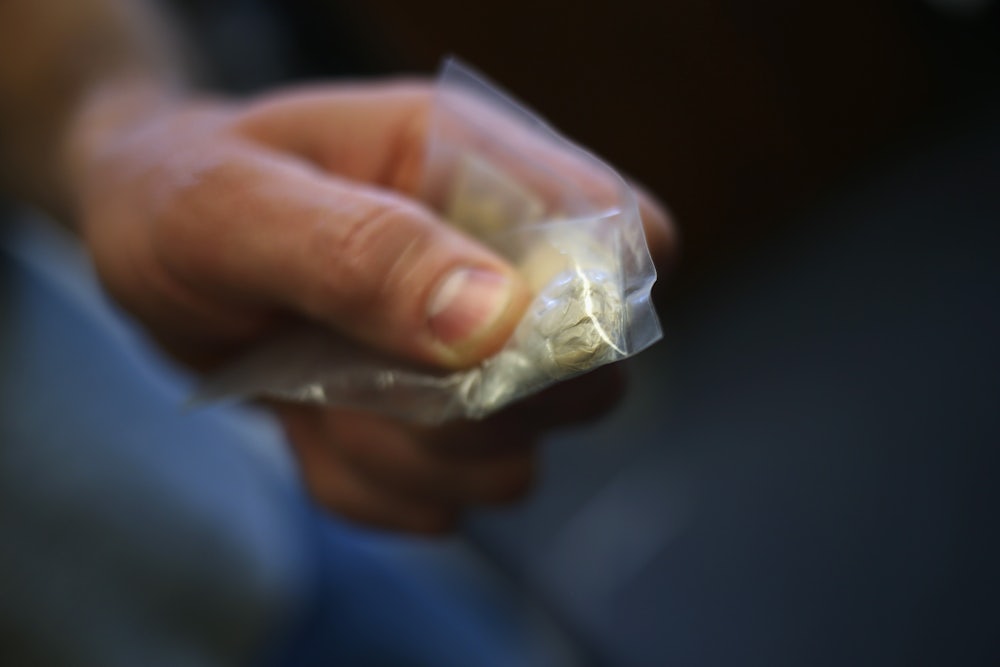The White House’s plan for fighting the opioid epidemic will propose giving the death penalty to “some drug dealers,” Politico reported Thursday. President Donald Trump is an enthusiastic proponent of the idea, and of capital punishment in general. A survey of key House Republicans by the Weekly Standard found that many of them would be receptive to Trump’s proposal, at least in theory.
It’s hard to assess whether Trump’s plan is constitutional without knowing the precise legislative text. In the 2008 case Kennedy v. Louisiana, the Supreme Court effectively abolished capital punishment for crimes that don’t result in the victim’s death. However, the justices explicitly said the ruling didn’t address whether the death penalty for “crimes against the state,” which they defined as “treason, espionage, terrorism, and drug kingpin activity,” are permissible. Depending on the proposal’s scope, that last category could provide federal prosecutors with legal cover.
What’s easier to assess is the pointlessness of the endeavor. Without a dramatic change in national temperament or constitutional law, American capital punishment appears to be in terminal decline. Death sentences are now handed out mostly in a handful of counties in a handful of states. (Federal death sentences are even sparser, and the government hasn’t executed anyone since 2003.) Most of those sentences are eventually overturned on appeal. A growing share of death-row inmates whose sentences are upheld instead die of natural causes while waiting to be executed.
Trump’s proposal would be constrained by the same trends. The lengthy appeals process alone guarantees that no defendants sentenced under it would be executed during his term, or probably even under his successor. Instead, its greatest impact would be to show the system for what it is: a creaky, glacial enterprise that imposes tremendous costs, moral and otherwise, on American society and delivers virtually nothing in return.
